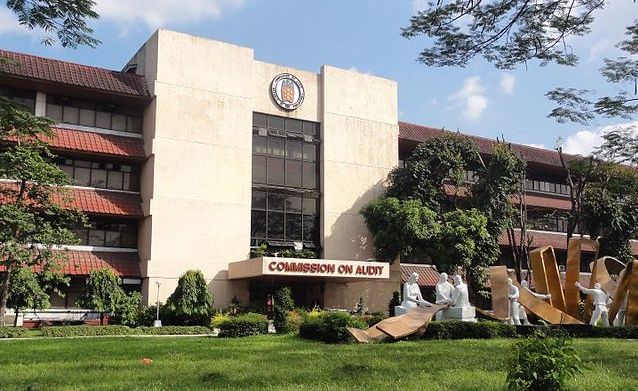SUMMARY
This is AI generated summarization, which may have errors. For context, always refer to the full article.

MANILA, Philippines – President Rodrigo Duterte on September 16 joked that an auditor from the Commission on Audit (COA) in Ilocos Norte should be pushed down the stairs to stop him from reporting on the local government’s transactions.
“Sino’ng taga-COA dito? Ihulog mo na sa hagdan para ‘di mag-report (Who’s from COA? Push him down the stairs so he won’t be able to file a report anymore),” said Duterte, after Governor Imee Marcos complained about various prohibitions COA is imposing on LGU spending.
Although he meant it as a joke, the comment drew criticism, including from former COA commissioner Heidi Mendoza who said state auditors work hard while “some of our own even laid their lives defending and protecting” taxpayers’ money.
How important is COA to the Philippines? They have been dubbed as guardians of public coffers, the “supreme auditing arm of the Philippine government,” ensuring that officials are not pocketing funds that are supposed to be used for effective running of government services, among others.
Constitutional mandate
No less than the 1987 Philippine Constitution, the highest law of the land, explicitly spells out the mandate of COA.
According to Section D of Article IX, the commission has the “power, authority, and duty to examine, audit, and settle all accounts pertaining to the revenue and receipts of, and expenditures or uses of funds and property, owned or held in trust by, or pertaining to” the government.
It also has the power to release accounting and auditing rules and regulations to prevent and disallow “irregular, unnecessary, excessive, extravagant or unconscionable” use of government funds.
Some of these rules are stated in the various circulars COA released – which Duterte belittled.
One of these circulars is the COA Circular 2014-002 which lays out guidelines on how to account for and use the National Disaster Risk Reduction and Management Fund as well as cash and in-kind donations from both local and foreign sources in times of national disasters such as typhoons.
Flagging, recommending charges
COA currently has 54,694 audit agencies scattered across several government offices – including water districts, state colleges and universities, local government units, and national government agencies, among others.
Reports and issuances are often released based on auditing done by COA on these government agencies, often flagging transactions that are deemed irregular or inappropriate based on audit rules. (READ: 6 times COA reported on key Duterte concerns, advocacies)
One example was when COA flagged the extravagant spending on travels by then Philippine Health Insurance Corporation’s (PhilHealth’s) interim president Celestina de la Serna and Tourism Promotions Board (TPB) chief Cesar Montano.
Montano, the commission found, was abroad 14 times in 2017 or a fourth of the year and that he spent P2.76 million during his travels, in addition to various questionable contracts. De la Serna, meanwhile, spent over P600,000 in 2017 on hotel stays and flights to and from her hometown.
Duterte fired De la Serna while Montano resigned after these COA findings came to light.
The commission can also recommend the filing of charges before the Office of the Ombudsman against government officials found to be violating laws. These recommendations are also based on their meticulous annual auditing procedures applied to several agencies.
One instance is when COA, in its 2017 audit report, recommended charges to be filed against “erring parties” in Ilocos Norte’s 5 construction contracts after discovering that the bidder was also an observer. This is prohibited by the procurement law.
The commission also spotted multiple irregularities in the transactions of the Ilocos Norte provincial government in relation to several projects. These included P154 million worth of doubtful deliveries of goods and P21.76 million worth of purchases with fabricated documents, based on COA’s 2017 audit report.
Various administrations and other individuals had been the subject of audit reports, including former vice president Jejomar Binay who, COA said, was administratively liable for the allegedly overpriced Makati City Hall Parking Building II. (READ: Binay liable for graft and corruption – COA)
Mendoza said that Rodrigo Duterte is the only Philippine president to tell government officials to ignore or defy state auditors’ circulars. If they heed his call, COA will either become useless despite its mandate, or unearth even more irregularities in the future. – Rappler.com
Add a comment
How does this make you feel?
There are no comments yet. Add your comment to start the conversation.